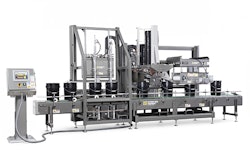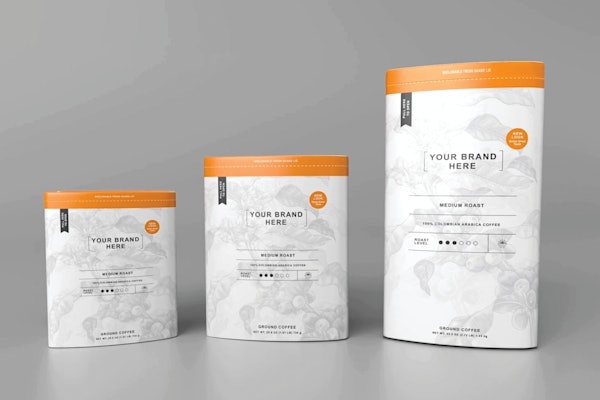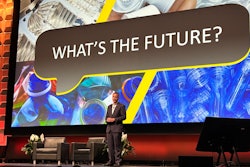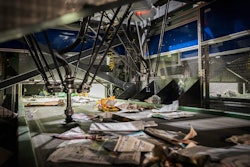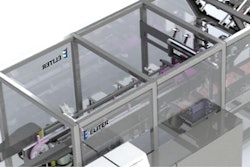
Environment, sustainability, and governance (ESG) goals are increasingly demanded by government and expected by consumers. According to the Manufacturers Alliance for Productivity and Innovation (MAPI) trends report 'Interesting Sustainability: ESG and Smart Manufacturing Trends', “ESG is a set of frameworks used to assess the impact of a company’s sustainable and ethical practices on its financial performance and operations.”
The ESG categories are used to measure and report a company’s progress and include areas often overlooked, such as inequality, climate risk, diversity, and ethics, when uptime and other pressing matters demand more attention. These areas can still affect a company’s bottom line.
The MAPI trends report says research also links high ESG ratings with higher profitability, higher dividend yield and decreased business risks, less volatility, and higher valuations
Considering these benefits, ESG goals can therefore be “useful financial indicators of company performance and of a sound investment … [as] higher scores reflect better management of risks and opportunities by companies,” according to the report.
But in many ways contract manufacturers and packagers (CM/CPs) often have little input as the sustainable nature of the materials, ingredients, and processes used in their facilities are most often controlled by their brand and consumer packaged goods (CPG) customers. But that doesn’t mean they are without options.
 | CPA Election Results, Success from Partnerships |
3 ways contract manufacturers and packagers can be environmentally conscious
LEK Consulting, a consulting firm that helps manufacturers and packagers, including CM/CPs, breaks down the efforts contract services can make to reach environmental goals into three categories:
- Equipment with the flexibility to run virgin or sustainable substrates.
- Internal ESG initiatives.
- Providing a suite of sustainable support services to brand owner customers.
 Amanda Winters, LEK Consulting partner and managing director.
Amanda Winters, LEK Consulting partner and managing director.
But, as LEK Consulting partner and managing director, Amanda Winters points out, “there's more innovative equipment out there where you could run sustainable substrates on similar equipment.”
 Thilo Henkes, partner and global packaging practice lead at LEK Consulting.
Thilo Henkes, partner and global packaging practice lead at LEK Consulting.
Internal sustainability initiatives are easier to commit to as they have no correlation with customers. Internal initiatives can include efforts to reduce landfill waste, increase recycling, or reduce carbon emissions. Many CM/CPs are actively striving to accomplish goals like reducing energy consumption, reducing water consumption within production and sourcing energy from renewable options.
“These are the activity set that manufacturers, agnostic of packaging, can deploy as a means of meeting internal ESG goals, without necessarily needing to do anything that's tied to the behavior of their upstream customers, like equipment purchases mentioned before,” says Jon Moss, partner at LEK Consulting. Jon Moss, partner at LEK Consulting
Jon Moss, partner at LEK Consulting
Sustainable support services are services CM/CPs can offer their brand owner customers and can involve things like support for more sustainable design of packaging and formulation. Though CM/CPs don’t have a direct effect on the packaging or product, they can provide suggestions for a more sustainably sound packaging solution and product formulation. KDC/One is an example of a co-manufacturer who provided such services to smaller brand owners in the beauty packaging space.
Another area of support is freight optimization. This includes efficiency in shipping full truckloads and improving secondary packaging architecture, particularly for non-cube-based products, for more efficient space usage. This is especially applicable in direct-to-consumer packaging in terms of shipping the products in primary packaging versus placing the product inside a larger box with void fill.
 Jeff Cloetingh, managing director and partner at LEK Consulting.
Jeff Cloetingh, managing director and partner at LEK Consulting.
Environmental co-man goals in the works
Yellow Emperor, a Eugene, Ore.-based liquid supplement contract manufacturer, has made sustainability a goal and provides insight into how CM/CPs can do their part.
Yellow Emperor’s efforts over the years have led to certifications such as GMP-certified plant and Certified Organic Processor for organic supplement private label manufacturing. The CM undergoes audits and inspections by state and federal regulatory agencies regularly. The certifications aren’t the ultimate point, however.
“You don't have to have a certification to be a sustainable business. You can do things that encourage sustainability without needing a third party,” says Sarah Vito, director of business development at Yellow Emperor.
 Sarah Vito, director of business development at Yellow Emperor.
Sarah Vito, director of business development at Yellow Emperor.
In fact, Yellow Emperor has made a commitment with The Climate Collaborative, a natural products industry nonprofit that is working towards unifying the industry around certain sustainability commitments without the use of certifications.
Yellow Emperor’s general environmental goals are to:
- Recycle
- Compost
- Use 100% post-consumer recycled paper
- Use green energy
- Use public or bicycle transportation to commute
- Encourage working from home
- Buy packaging that can be recycled
- Buy packaging that has recycled content
- Buy organic ingredients
- Buy local
An example of what this looks for Yellow Emperor is 50% recycled content in the boxes they use and 30% post-consumer recycled content in bottles. Vito’s own personal mission to find ways to reduce secondhand or one-time use plastics, such as pallet wrap, straps, and shrink sleeves.
“I have made headway on a post-consumer recycled pallet wrap, which we're going to be testing soon. If we can reduce the use of fresh virgin plastic, I feel like that's somewhat of a win. My goal is to find some kind of biodegradable, compostable nonpetroleum-based pallet wrap,” says Vito.
How can a contract manufacturer or packager start?
CM/CPs can also become an innovation partner for brand and consumer packaged goods (CPG) customers, providing the design and formulation services mentioned above by LEK Consulting.
Brands are looking for CM/CP partners who will be an innovation and growth partner, meeting with the brands’ marketing and consumer insights teams and offering services to improve product and process innovation.
 | How CM/CP Entities Get Noticed |
Yellow Emperor has become a partner and advocate for sustainable manufacturing in situations where a material is expensive or hard to acquire or is an herb that is threatened in some way. The CM offers material replacement recommendations in such instances. “Most folks are really appreciative of the heads up, because everybody wants to make sure that they have a steady supply chain,” says Vito.
Yellow Emperor’s also categorizes its suppliers into tiers to serve as an internal benchmark for the CM to determine how sustainable its sourcing is. Platinum vendors have a strong sustainability focus and are likely local in Oregon or pacific Northwest, gold vendors have somewhat of an eye on sustainability and are likely located further afield in the Midwest and continental West, and silver vendors have no sustainability goals and are likely located far away on the East Coast.
 Recycling and compost receptacles inside Yellow Emperor’s employee lounge.
Recycling and compost receptacles inside Yellow Emperor’s employee lounge.
Ultimately though, it comes back to customers. Henkes suggests that CM/CPs aim to understand how they can help customers meet their ESG goals. “That may give the co-man or co-packer some ideas as to what should be their first, second and third initiatives,” he says. Henkes also suggests understanding, from a competitive standpoint, what other CM/CPs are doing to meet ESG goals.
‘It’s not as hard as it seems’: benefits of being more sustainable
The most obvious benefit, according to Vito, is in the workforce. The company saw an increase in job candidates who specifically applied to Yellow Emperor positions thanks to the company’s sustainability focus. Vito explains that having a workforce whose values line up with the company’s makes some of Yellow Emperor’s goals easier to implement.
Vito also says Yellow Emperor finalized contracts with a number of new customers within the last 18 months who made it a point to discuss the contract manufacturer’s sustainability goals.
Yellow Emperor’s new facility is large enough for receiving, warehousing and production to be in one location, whereas the old facility was too small to house receiving and warehousing. This reduces truck emissions and travel costs. The new facility also allows the space to implement lean manufacturing and increase time efficiencies. This further eliminated needless running of machines.
Over time, monetary benefits accrue from green efforts as small as using more sustainable light bulbs. They may cost more upfront, but use less energy and are changed less often.
“It's little steps, then you turn and you're like ‘Oh wow, we've really come a long way and it was just little things that we did along the way and none of it really hurt. And some of it actually saved us money,’” says Vito. “You don't have to upturn everything, it can be a gradual, slow progression. So just start somewhere and do the next best thing you can do. If you're buying office supplies, just buy 100% post-consumer recycled paper. It's not as hard and as daunting as it seems.”



